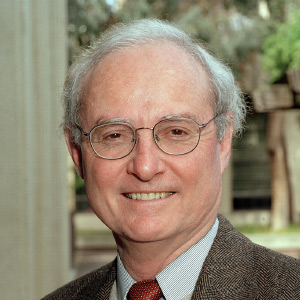Gilbert and Sullivan could have written a brilliant comic opera about last week’s spectacle of Hugo Chavez chasing George Bush around Latin America from south to north, shouting all the way. The two hit five countries each, Bush, for once, preaching ”social justice,” and Chavez playing the modern “truth squad” by “correcting” and interpreting everything the American president exclaimed. Bush never mentioned Chavez by name, while the Venezuelan focused entirely on the dangers of the American “devil.”
In fact, the engagement underlined the very serious alternative approaches to national development competing in Latin America today. Bush denies that his long-overdue trip that began in Brazil and ended in Mexico was forced upon him by the growth of Chavista authoritarian populism in Latin America, but the denial rings hollow. The outcome of this competition is important for the United States, but it is critical for Latins.
Bush is not popular in Latin America, but polls show that he is nonetheless slightly better liked than Chavez. That said, many Latins are in agreement with a lot of what the Venezuelan leader says. He has taken over the role Fidel Castro held for decades as the region’s foremost anti-American purveyor of economic tripe and false hope. But the popularity of Chavez’s authoritarian populist message has been seen in recent elections and policies from Argentina and Bolivia to Mexico.
If one flushes out Chavez’s constant ad hominem attacks on Bush, his message can be boiled down to three basic points: (1) most of Latin America is plagued by seemingly intractable poverty and inequality; (2) the United States and entrenched domestic elites and institutions are responsible for this situation; and (3) his “twenty-first century socialism” is the silver bullet, the bright and shining hope of the impoverished masses who seek freedom from exploitation and a joyous future. He is dead right on the first point, right on part of the second point, and dead wrong on the third.
Much of this message resonates around Latin America because so many people are so frustrated by centuries of regimes that have constantly failed to serve popular needs. Extreme poverty and inequality have characterized the region since pre-Columbian times. But Chavez’s message also resonates because it is far easier to blame the U.S. for one’s problems than to reform the traditionally unresponsive Latin culture and institutions that are responsible.
In fact, seeking earthly salvation from a Chavista Messiah is the ultimate non-starter because Latins have marched down that road before in different guises. This “twenty-first century socialism” is simply an aggressive and globalized rehash of the authoritarian, statist paternalism that caused and maintained Latin America’s underdevelopment in the first place. It is precisely the ancient Iberian view of people, economics and institutions that over many centuries made and kept Latin America the most unequal region on earth.
This “socialism” may survive for a few years in Venezuela where Chavez is now consolidating power with a recent electoral mandate. He is able to do so by throwing around multi-billions of petro-dollars and bailing out failed and failing “socialist” programs. Other countries that have fallen or threaten to fall under the spell of a Chavista Messiah, most obviously Bolivia and Ecuador, but lack the petro-billions, will crash more quickly if they don’t just smolder indefinitely in continuing hopelessness.
The new Bush interest in “social justice” is a belated effort to communicate with Latin populations that often consider the U.S. the model of social and economic opportunity but also of exploitation and selfishness, an impression intensified by tough U.S. security policies since 9/11. Both presidents cited their “generous” aid packages of several billion dollars in recent years-- Chavez claiming that only his more extensive aid will really benefit the people. But this type of economic link is insignificant when compared to other forms of economic interaction.
Incomparably more valuable than foreign aid is the U.S. as a market for Latin goods and a workplace for Latin nationals. Latin exports to the U.S. last year topped $330 billion and remittances sent back home from Latins working in the States were more than $60 billion. Those realities matter far more to millions of Latins than measly aid and Chavez offers nothing even remotely comparable. Indeed Chavez sustains a major portion of his anti-American socialism from his massive oil sales at astronomical market prices to the United States.
Latin America’s real need now, as for centuries past, is precisely the opposite of Chavista authoritarian socialism. Specifically, it needs vastly expanded, high quality education that promotes entrepreneurship and personal responsibility. It needs the creation of opportunities for all to work and grow with equal protection under the law. It needs greater pluralism, economic liberalization and truly free trade.
The United States is not perfect in these areas, but it is light years ahead of Venezuela. Several Latin countries are tilting, in varying degrees, in the constructive direction: among them Chile, Colombia, Mexico and Brazil. Washington should support these countries and they in turn should join the U.S. in quietly but firmly demonstrating how free trade and markets offer a potentially productive alternative to Chavez’s scape-goating, paternalistic recipe for continuing inequality and poverty. Indeed, if the Chavista model wins out, the moderates may well be swept away in the chaos.
As an immediate signal of seriousness, Washington should clean up the contradictions and counterproductive aspects of American trade and immigration policies.








